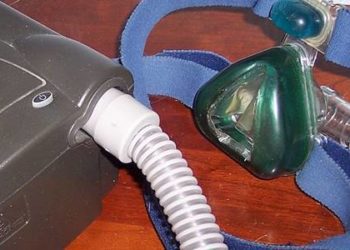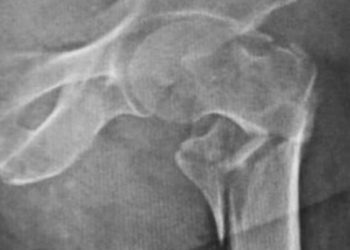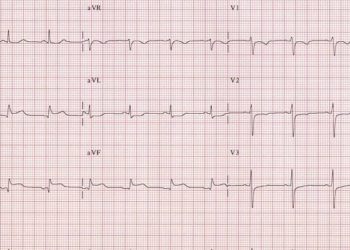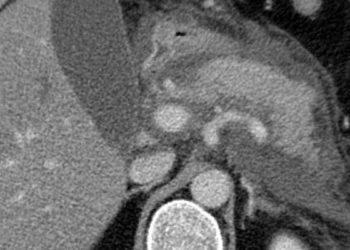Intensive lifestyle intervention in overweight adults associated with higher remission rates of Type 2 Diabetes
 [tabs tab1=”2MM Rundown” tab2=”Full 2MM Report” tab3=”About the Authors”]
[tabs tab1=”2MM Rundown” tab2=”Full 2MM Report” tab3=”About the Authors”]
[tab]
Image: PD/CDC. Diabetes Diagnoses (Red=higher, 2009)
1. Overweight adults participating in an intensive lifestyle intervention had higher remission rates than those participating in a diabetes support and education program.
2. Absolute remission rates over the 4-year period were low regardless of treatment group.
Overweight diabetic patients may benefit more intensive lifestyle interventions than support and educational interventions. Additionally, intensive interventions appear to have the most dramatic effect when employed soon after diagnosis. These findings suggest that interventions to treat Type 2 diabetes should be tailored based on factors such as a patient’s glycemic control and the duration of their diabetes. Still, 4-year absolute remission rates were low in both groups. These findings underscore the difficulty in reversing diabetes, the importance of prevention and early diagnosis, and the need for better treatments for current diabetic patients who may not be suitable for bariatric surgery.
Limitations of the study include the use of remission as a secondary outcome measure of the Look AHEAD study, meaning causation can not be assumed, and a study population that comprised patients with diabetes that varied broadly in severity and duration, preventing isolated examination of patients who may be most likely to benefit from intervention.
Click to read the study in JAMA
Click to read an accompanying editorial in JAMA
[/tab]
[tab]
Image: PD/CDC. Diabetes Diagnoses (Red=higher, 2009)
1. Overweight adults participating in an intensive lifestyle intervention had higher remission rates than those participating in a diabetes support and education program.
2. Absolute remission rates over the 4-year period were low regardless of treatment group.
Primer: Type 2 diabetes mellitus currently affects 25.8 million US adults, or 8.3% of the population, with a projected prevalence of more than 50 million US adults by 2050 (1). Diabetes prevention efforts for overweight adults have focused on diet, exercise and medication (2). In severely obese adults with type 2 diabetes, research has found bariatric surgery to be more effective than diet and exercise interventions in achieving remission (3).
However, bariatric surgery can be expensive (2010 estimated cost between $15,000 to $30,000 not including associated plastic surgery and counselling). Further, it is typically recommended to severely obese adults rather than moderately overweight adults (4). Given these challenges and the growing burden of diabetes in the US, more research on how to maximize effectiveness of non-surgical interventions, including lifestyle, for moderately overweight adults is needed.
The present study examined diabetes remission rates from the randomized controlled Look AHEAD trial, which primarily investigates how weight loss interventions affect heart disease incidence in overweight (BMI ≥ 25) adult participants with type 2 diabetes.
Background reading:
- CDC – Diabetes At A Glance
- National Diabetes Information Clearinghouse – Diabetes Prevention Program
- Comparative effectiveness of bariatric surgery vs. nonsurgical treatment of type 2 diabetes among severely obese adults
- New York Times – After Surgery to Slim Down, the Bills Can Pile Up
This [exploratory analysis] study: compared 2,241 participants in the intensive lifestyle intervention group (intensive group: regular counseling on diet and exercise, with specific caloric intake and physical activity goals) and 2,262 participants in the diabetes support and education program group. Outcomes measured including partial and absolute remission.
Compared to support group patients, intensive group patients achieved remission (partial and/or absolute) in all years (2% vs. 11.5% in year 1 and 2% vs. 7.3% in year 4 for support vs. intensive groups, respectively; p<0.001 for both comparisons). Adults who had early-stage diabetes (less than two years in duration, low baseline glycemic control levels), lost substantial weight, greatly improved fitness, and achieved the highest partial remission rates. Notwithstanding, absolute remission rates were low in both treatment groups.
In sum: Overweight diabetic patients may benefit more intensive lifestyle interventions than support and educational interventions. Additionally, intensive interventions appear to have the most dramatic effect when employed soon after diagnosis. These findings suggest that interventions to treat Type 2 diabetes should be tailored based on factors such as a patient’s glycemic control and the duration of their diabetes. Still, 4-year absolute remission rates were low in both groups. These findings underscore the difficulty in reversing diabetes, the importance of prevention and early diagnosis, and the need for better treatments for current diabetic patients who may not be suitable for bariatric surgery.
Limitations of the study include the use of remission as a secondary outcome measure of the Look AHEAD study, meaning causation can not be assumed, and a study population that comprised patients with diabetes that varied broadly in severity and duration, preventing isolated examination of patients who may be most likely to benefit from intervention.
Click to read the study in JAMA
Click to read an accompanying editorial in JAMA
By [CH] and [LH]
More from this author: Dietary salt intake associated with greater consumption of sugar-sweetened beverages in children, Clinically integrated e-learning course improves evidence-based practice in ObGyn trainees in low- and middle-income countries, Patients who utilize online health services make greater use of in-person services
© 2012 2minutemedicine.com. All rights reserved. No works may be reproduced without written consent from 2minutemedicine.com. Disclaimer: We present factual information directly from peer reviewed medical journals. No post should be construed as medical advice and is not intended as such by the authors or by 2minutemedicine.com. PLEASE SEE A HEALTHCARE PROVIDER IN YOUR AREA IF YOU SEEK MEDICAL ADVICE OF ANY SORT.
[/tab]
[tab]
 Caroline Huang: Caroline is a 3rd year Ph.D. candidate in Public Health at the University of Oxford’s Ethox Centre, where she is a Rhodes Scholar. She researches the ethical issues surrounding access to the identification, care, and treatment of BRCA1 and BRCA2 gene mutations, and she also teaches medical ethics to Oxford medical students. Prior to moving across the pond, she graduated from MIT with a degree in Brain and Cognitive Sciences. In her free time, she plays European football and watches American football.
Caroline Huang: Caroline is a 3rd year Ph.D. candidate in Public Health at the University of Oxford’s Ethox Centre, where she is a Rhodes Scholar. She researches the ethical issues surrounding access to the identification, care, and treatment of BRCA1 and BRCA2 gene mutations, and she also teaches medical ethics to Oxford medical students. Prior to moving across the pond, she graduated from MIT with a degree in Brain and Cognitive Sciences. In her free time, she plays European football and watches American football.
 Leah Hawkins: Leah is a 5th year M.D./MPH candidate at Harvard Medical School. After studying reproductive epidemiology as an MPH student, she is currently conducting infertility research at the Brigham and Women’s Hospital. She is a native North Carolinian and alumna of the University of North Carolina at Chapel Hill, where she studied Biology and conducted public health research in southern and eastern Africa as a Morehead-Cain Scholar. She is interested in women’s general and reproductive health and in measures to improve patient education, diagnosis and management.
Leah Hawkins: Leah is a 5th year M.D./MPH candidate at Harvard Medical School. After studying reproductive epidemiology as an MPH student, she is currently conducting infertility research at the Brigham and Women’s Hospital. She is a native North Carolinian and alumna of the University of North Carolina at Chapel Hill, where she studied Biology and conducted public health research in southern and eastern Africa as a Morehead-Cain Scholar. She is interested in women’s general and reproductive health and in measures to improve patient education, diagnosis and management.
[/tab]
[/tabs]






